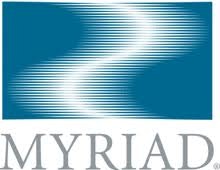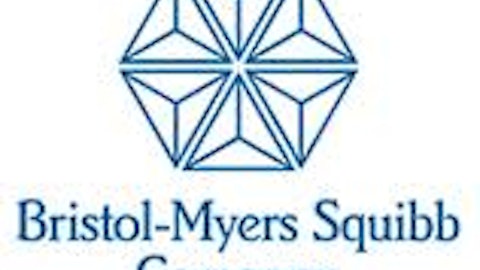
The company’s dependence on the tests in question has given rise to chaos. Is there any chance the company can escape unscathed?
What happened?
Even I didn’t fully understand the details of the case until I took a few hours to wrap my head around some legal jargon and draw a diagram of exactly where the case has been heard since 2009. Nothing like taking a snowy weekend to brush up on your Latin!
How did all of this get started? In May 2009, the Association for Molecular Pathology brought a lawsuit against Myriad Genetics, Inc. (NASDAQ:MYGN), claiming that 15 claims in seven U.S. patents for the company’s BRACAnalysis were invalid.
The first thing for investors to know is that there are two types of claims in question in the case. The first type is a composition-of-matter claim, which pertains to a physical entity such as a strand of DNA. The second type is a method claim, which pertains to the analysis performed in a diagnostic test. A method claim is generally less valuable because it can be invalidated as a series of logical steps, which are better protected as trade secrets, not patents.
Essentially, the plaintiff argued that natural material such as genetic material was patent-ineligible as a product of nature. Although for Myriad Genetics, Inc. (NASDAQ:MYGN), the method claims — the heart of the company’s business model — are arguably more important. What is patentable biologic material? You may not like it, but the United States Patent and Trademark Office, or USPTO, states the following:
“Like other chemical compounds, DNA molecules are eligible for patents when isolated from their natural state and purified, or when synthesized in a laboratory from chemical starting materials. … The courts interpret the statutory term ‘useful’ to require disclosure of at least one available practical benefit to the public.”
The words “isolated” and “purified” are the key to the case. They also mean that, even though nearly 4,000 human genes have been patented, your existence alone does not infringe upon them. You can rest easy now.
The events that followed require the help of a diagram or table. Don’t get too hung up on the details, as the only decision that matters is the one pending from the Supreme Court.
| Date | Court | Decision |
|---|---|---|
| May 12, 2009 | Lawsuit filed in District Court | (Stock up on markers, paper, coffee, etc) |
| March 29, 2010 | District Court of New York | All claims invalid (plaintiff victory) |
| June 16, 2010 | Appeal by Myriad | Granted |
| July 29, 2011 | Court of Appeals (Federal Circuit) | District court overturned, method claims invalid (defendant victory) |
| Dec. 7, 2011 | Petition for Writ of Certiorari (appeal by plaintiff) | Granted (see next) |
| March 26, 2012 | Supreme Court | Vacated Court of Appeals decision, case to be reheard by Case of Appeals |
| Aug. 16, 2012 | Court of Appeals (Federal Circuit) | Identical decision as June 29, 2011 |
| Sept. 25, 2012 | Petition for Writ of Certiorari (appeal by Public Patent Foundation for plaintiff) | Granted (see next) |
| Nov. 30, 2012 | Supreme Court | Agreed to hear second petition, decision pending |
Source: Myriad Genetics.
Why it matters
After bouncing around for nearly four years, the case has worked its way up to the highest court in the land. History shows that the Supreme Court has not been shy to invalidate claims protecting widely used tests. A more complete review of how past decisions may affect Myriad Genetics, Inc. (NASDAQ:MYGN) can be found in Dr. Jeffrey Lefstin’s post on Patentlyo.com.
Should the Supreme Court rule that the method claims in dispute are invalid, it could open the floodgates to dismantle Myriad Genetics’ business model of selling diagnostic tests. The company isn’t the only one holding onto gene patents, though. Depending on the scope of the decision, it is quite possible that patented gene diagnostic tests could go the way of the dodo. Will other companies be affected by the ruling?





